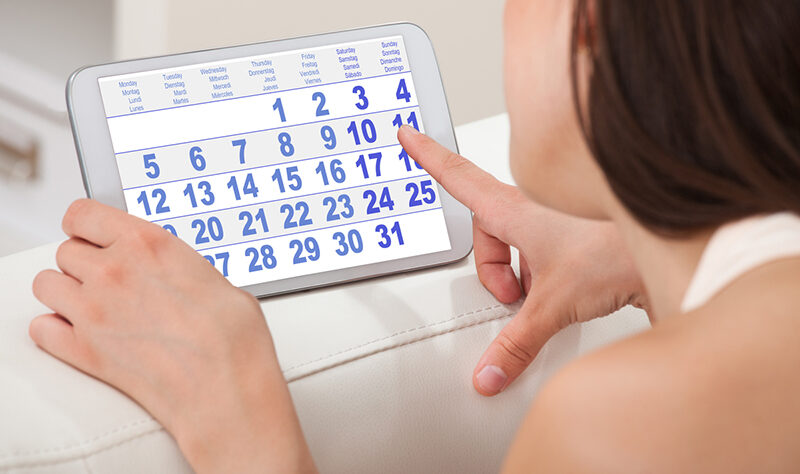The menstrual cycle is much more than just the cycle that triggers your periods.
In 2015, The American College of Obstetricians and Gynecologists Committee designated it as “the fifth vital sign”, the first four including body temperature, blood pressure, heart rate, and breathing rate.
As you enter puberty, you should get check-ups to learn what to expect from your first and subsequent menstrual periods. Detecting abnormal periods can help you identify and manage potential health issues.
Here are some facts about young girls’ periods:
- Menstruation most likely starts 2-3 years after breast development.
- The average age of the first period, also known as menarche, is 12-13 years.
- Most girls bleed for 3-7 days during their menstrual cycle. However, cycle length can vary since the brain and ovaries are still learning to communicate with one another when young girls first start menstruating.
- Menstrual cycles range from 21 to 45 days.
- Periods should come without noticeable premenstrual symptoms
- Periods should be without clots and fairly pain-free
- When it comes to heaviness, you shouldn’t have to change menstrual products like pads or tampons more than every 1-2 hours or less than 2-3 times per day.
Once your period begins, you should keep a menstrual diary/calendar, known as ‘the monthly report card’. It tells you a lot about your overall health as well as your health over the last month. Take note of the following:
- The blood quantity – how often do you need to change menstrual products?
- The blood quality – Is it thick or watery? Do you have any clots? Is there any mucus?
- The blood’s colour – Is it a deep red or a bright red? Is it more purple? Or brown? Or is it grey?
- Length of the cycle and menstruation, and whether it is regular or irregular?
- Discomfort – where is the pain in the abdomen? Is it spreading? What exactly is the nature of the pain?
- Associated symptoms – do other bodily functions change during the menstrual cycle? What about the bowels? How do you sleep? Are you getting other symptoms like nausea, headaches, or mood changes?
The answers to all of these questions reveal information about your body’s current state. It indicates whether hormones are in excess or deficiency, whether blood is properly circulating, and the overall body’s health.
You can even begin by downloading the free Kotex period tracker to your smartphone and keeping track of period dates and symptoms throughout your cycle.
Ten warning signs
You should contact a doctor if you experience any of the following:
- Menarche that did not begin within three years of breast development
- First period that has not started by the age of 14 with signs of excessive hair growth
- Menarche that has not begun by the age of 14 in patients who engage in excessive exercise or have an eating disorder
- Menarche that has not started by the age of 15
- Periods that occur more frequently than every 21 days or less frequently than every 45 days
- Periods that occur 90 days apart, even for one cycle
- Periods lasting more than seven days
- Periods requiring frequent pad or tampon changes (soaking more than one every 1-2 hours)
- Heavy periods accompanied by a history of excessive bruising or bleeding or a family history of a bleeding disorder
- Painful periods that interfere with daily activities, attendance at school, or participation in extracurricular activities
Take Away
Consider the menstrual cycle a vital sign when diagnosing your body’s health. If you have any health issues, pay attention to how they affect you at each stage of your cycle or during menstruation.
Every woman and every illness pattern differs when it comes to the menstrual cycle, but if there is one thing that all menstruating women should do, it is to relax during periods. Taking care of yourself during your menstrual cycle is a simple and effective way to improve your menstrual and overall health. It may be as simple as getting to bed a bit earlier on your first day of bleeding or taking a long hot shower.
Consult your doctor if you have any concerns.

